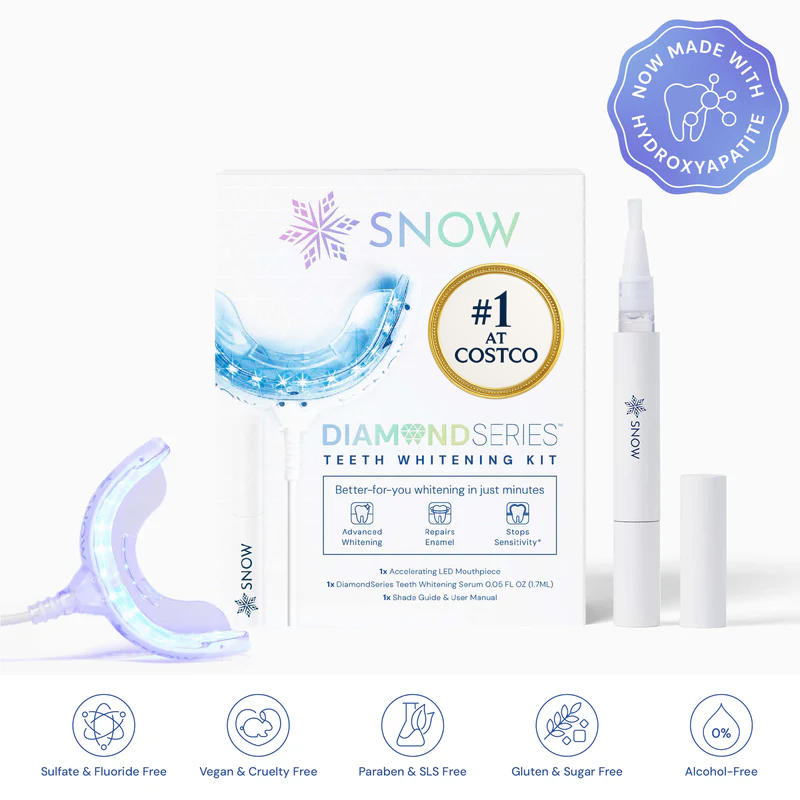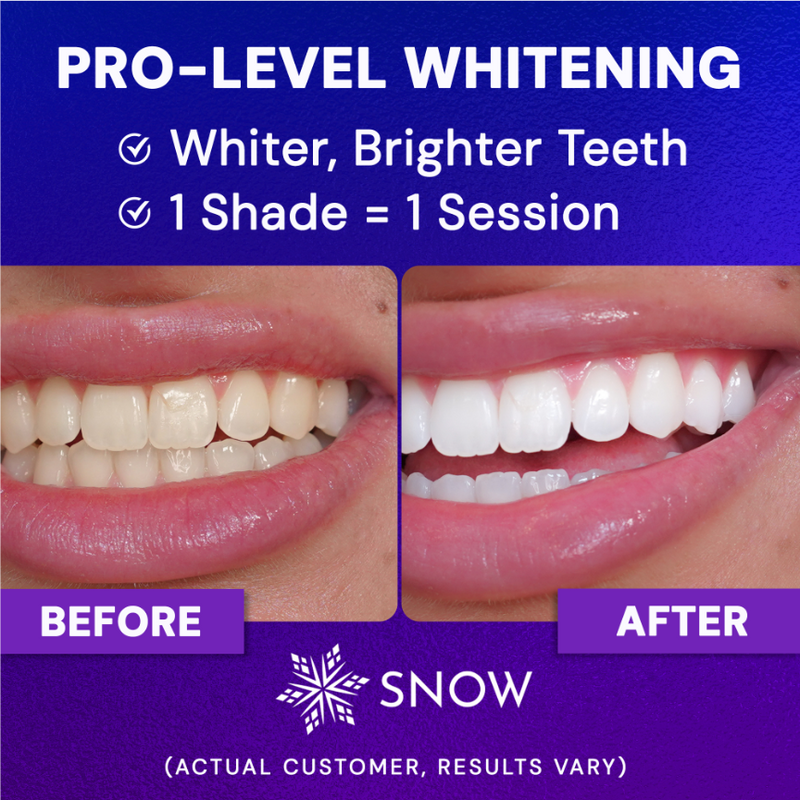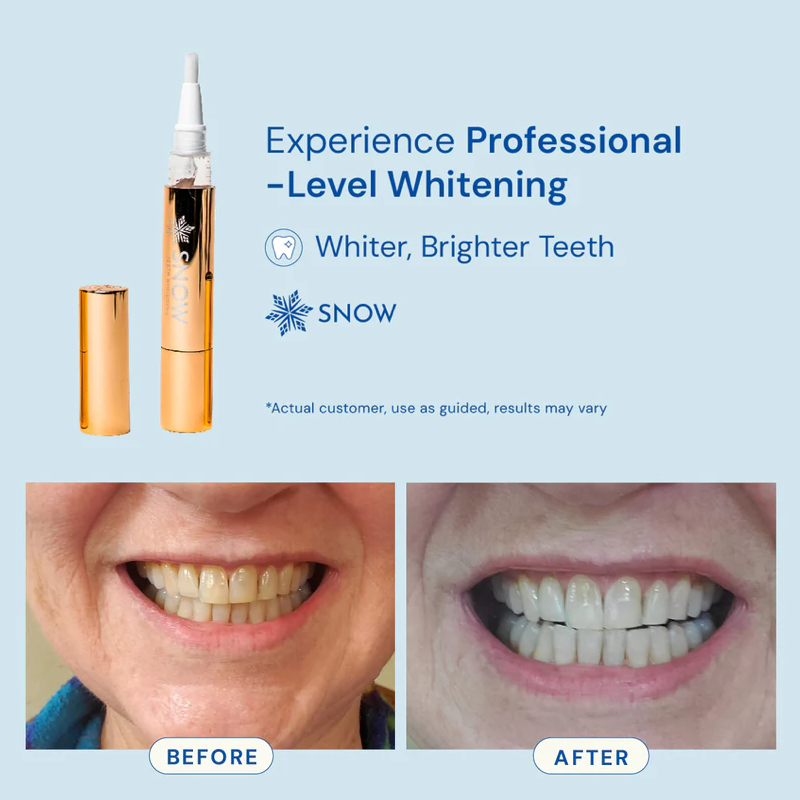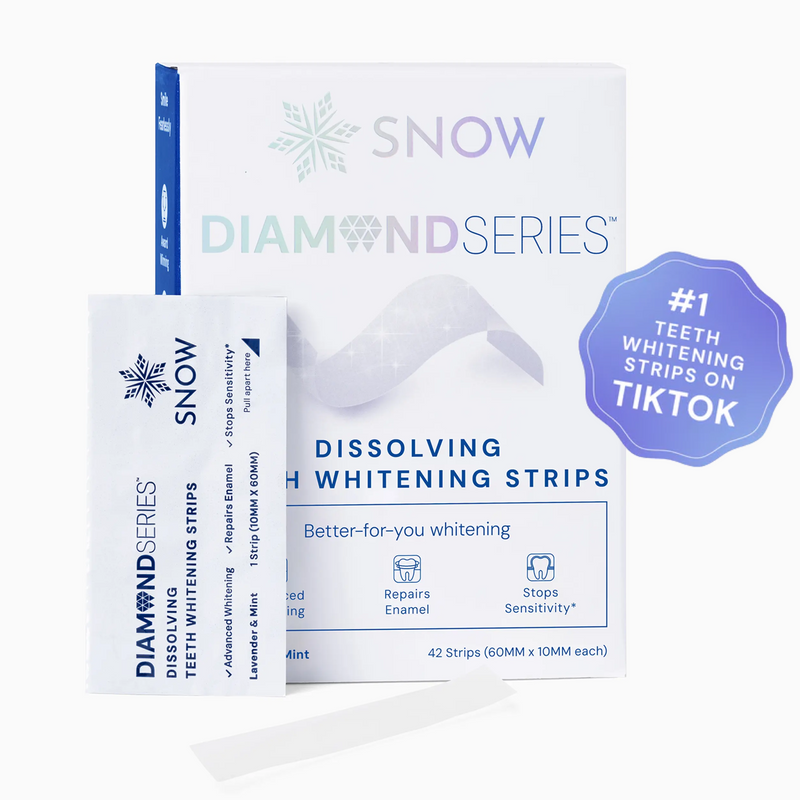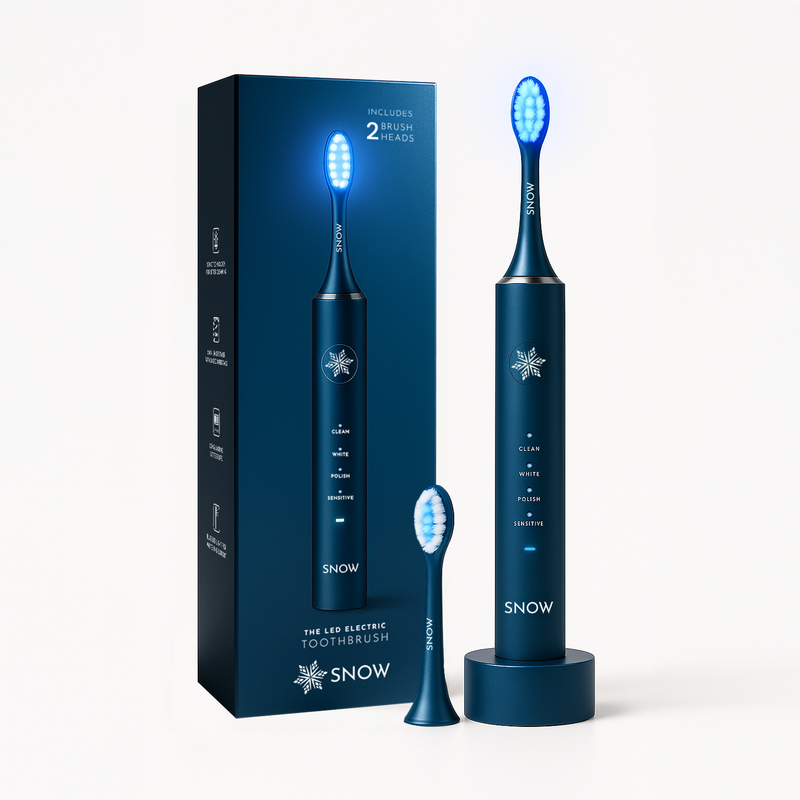If you feel a sharp pain when enjoying hot coffee, cold drinks, or even something sweet, you're not alone. Tooth sensitivity affects millions and can make everyday activities uncomfortable. The good news is that the best toothpaste for sensitive teeth can ease discomfort and help restore your confidence in eating and drinking.
This guide covers what causes tooth sensitivity, which ingredients provide real relief, and how to choose a toothpaste that works for your needs. With the right formula and a consistent routine, you can protect your enamel, reduce irritation, and support long-term oral health.
Key Takeaways
-
Tooth sensitivity is commonly caused by enamel wear, gum recession, or exposed dentin that reacts to heat, cold, or sugar.
-
Choosing a toothpaste with proven ingredients like potassium nitrate, stannous fluoride, or hydroxyapatite can help relieve pain and support enamel repair.
-
The best toothpaste for sensitive teeth not only soothes discomfort but also strengthens enamel and supports a healthier smile over time.
What Causes Tooth Sensitivity?

Tooth sensitivity, also known as dentin hypersensitivity, happens when the inner layers of your teeth become exposed. This can occur due to enamel erosion, gum recession, cracked teeth, or aggressive brushing. These conditions reveal the dentin beneath the enamel, which contains microscopic tubules that lead to the tooth’s nerve center.
When exposed, these tubules allow hot, cold, sweet, or acidic substances to reach the nerves, resulting in sudden, sharp pain. This discomfort may happen occasionally or become frequent enough to interfere with eating and drinking. In some cases, persistent sensitivity may point to underlying issues like cavities or gum disease.
How the Right Toothpaste Can Help
Tooth enamel and dentin are your first line of defense against sensitivity. When they weaken, your teeth become more reactive to temperature and food. A well-formulated toothpaste can help rebuild enamel strength and reduce pain by blocking the nerve pathways.
Addressing sensitivity is not just about short-term relief. It’s also about protecting and restoring your enamel over time. Choosing the right ingredients can support overall oral health and reduce sensitivity triggers, helping you enjoy daily life more comfortably.
Key Ingredients in Sensitive Toothpaste
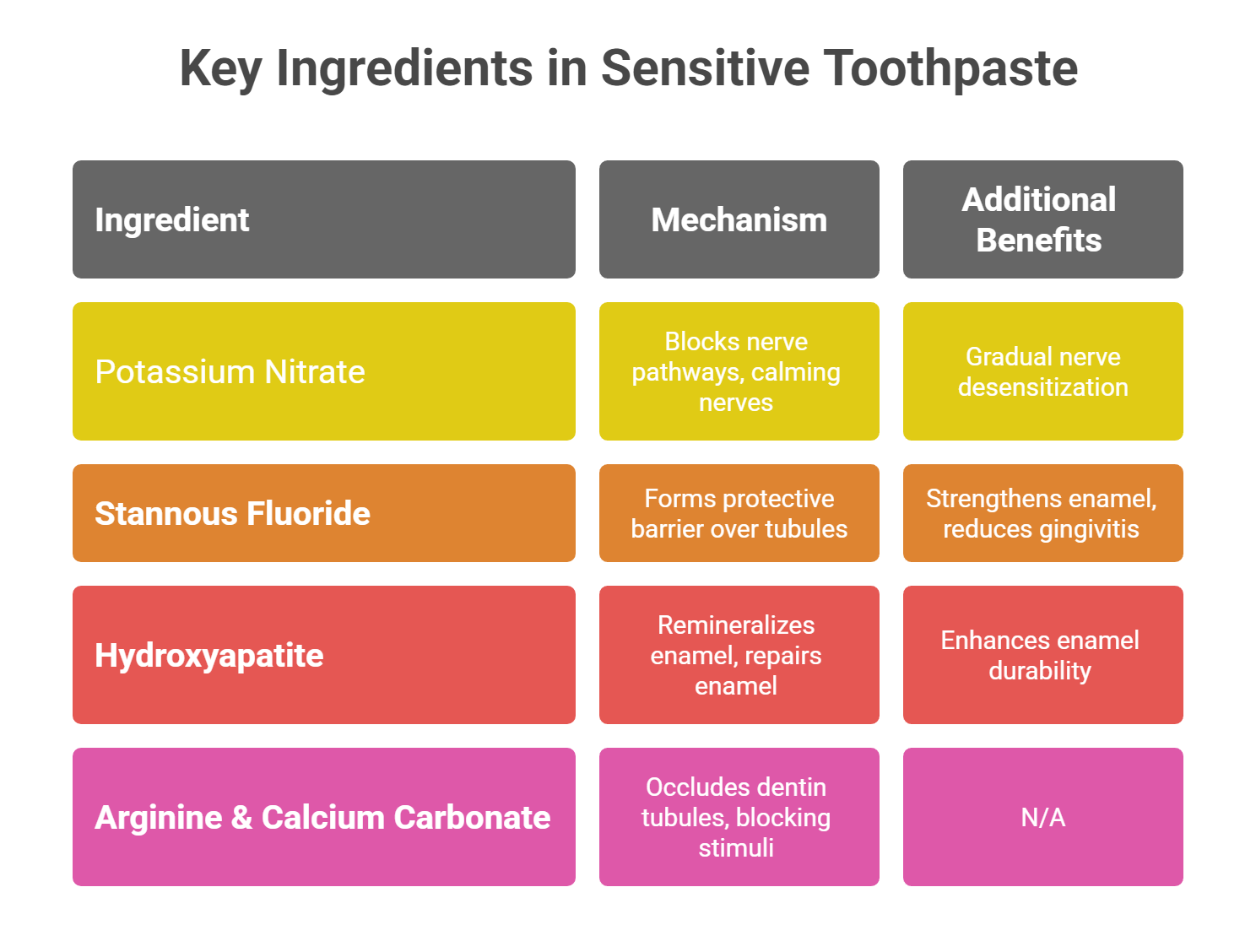
Sensitive toothpastes contain specific active ingredients designed to alleviate tooth sensitivity. Key ingredients include potassium nitrate, stannous fluoride, hydroxyapatite, and arginine combined with calcium carbonate. Arginine, when paired with calcium carbonate, helps to occlude dentin tubules, effectively blocking stimuli from reaching the nerves and reducing sensitivity.
Understanding these ingredients can help you choose the most effective toothpaste for your sensitive teeth.
Potassium Nitrate
Potassium nitrate is a common ingredient in sensitive toothpastes, known for its ability to block pathways to the tooth’s nerves and reduce discomfort. It works by calming the nerves inside the tooth’s pulp, reducing their ability to transmit pain signals. This ingredient is considered the gold standard for gradual nerve desensitization, providing relief after 2–4 weeks of consistent use.
Twice Oral Wellness Sensitive toothpaste, for instance, includes 5% potassium nitrate, which is effective in reducing pain associated with tooth sensitivity. This ingredient’s inclusion in toothpaste formulations is a testament to its effectiveness in providing long-lasting sensitivity relief.
Stannous Fluoride
Stannous fluoride is another powerhouse ingredient in the battle against tooth sensitivity. It eases sensitivity and strengthens enamel, providing a dual-action benefit. This fluoride variant forms a protective barrier over dentin tubules, often providing faster relief but requiring ongoing use to maintain occlusion.
Sensodyne’s formulations feature stannous fluoride for dual-action relief and enamel repair. Additionally, it reduces gingivitis and plaque buildup, contributing to overall dental health. For those looking for comprehensive care, including cavity prevention and sensitivity relief, Sensodyne toothpaste is a key ingredient to look for.
Hydroxyapatite
Hydroxyapatite is a naturally occurring mineral that plays a crucial role in rebuilding and strengthening tooth enamel. It contributes to reducing tooth sensitivity by helping to remineralize enamel and repair enamel. Similarly, Novamin releases calcium and phosphate ions that aid in remineralizing and repairing damaged enamel and dentin, creating a protective layer to shield teeth from sensitivity triggers.
Toothpastes containing hydroxyapatite, such as Tom’s of Maine Fluoride-Free Sensitive, can assist in remineralize teeth and strengthen tooth enamel, making them an excellent option for those looking to address sensitivity and enhance enamel durability.
Top-Rated Toothpastes for Sensitive Teeth
If you struggle with sharp pain from hot or cold foods, the right toothpaste can make all the difference. The best toothpaste for sensitive teeth helps relieve discomfort while strengthening enamel and supporting long-term oral health.
Below are top choices based on ingredient quality, effectiveness, and daily usability.
SNOW® Fluoride-Free Hydroxyapatite Whitening Toothpaste
SNOW® offers a fluoride-free toothpaste designed specifically for people with sensitivity. Its formula uses nano-hydroxyapatite to fill in microscopic holes in the enamel, helping reduce sensitivity over time. Alongside enamel repair, it also gently whitens and freshens breath using natural ingredients like coconut oil and peppermint oil. The clean, dentist-formulated blend is free from harsh chemicals, making it safe for daily use and ideal for sensitive mouths.
What Makes It Best:
-
Nano-hydroxyapatite helps rebuild enamel and reduce sensitivity
-
Fluoride-free, paraben-free, and SLS-free for a clean ingredient profile
-
Infused with xylitol, peppermint oil, and coconut oil for added freshness
-
Safe for daily use and formulated by dental professionals
-
Trusted by over one million users nationwide
Sensodyne Rapid Relief
Sensodyne Rapid Relief is known for its fast-acting formula that targets sensitivity directly at the nerve level. With consistent use, many users report relief in as little as three days. Its active ingredient, potassium nitrate, calms nerve signals in the tooth, helping reduce pain from hot or cold triggers. This toothpaste is a top choice for anyone looking for quick, lasting comfort.
What Makes It Best:
-
Contains 5% potassium nitrate for fast sensitivity relief
-
Starts working in just a few days
-
Helps block pain signals to the nerves
-
Safe for everyday use
-
Well-reviewed for its long-lasting effects
Colgate Sensitive Prevent & Repair
Colgate Sensitive Prevent & Repair offers a strong dual-action formula for those needing both relief and enamel strengthening. It combines potassium nitrate with sodium fluoride to create a protective barrier over sensitive areas. With regular brushing, this toothpaste not only helps reduce sensitivity but also improves the tooth's resistance to future triggers. It’s a solid all-around option for daily care.
What Makes It Best:
-
5% potassium nitrate for sensitivity reduction
-
Sodium fluoride strengthens enamel and prevents decay
-
Creates a lasting protective layer on sensitive teeth
-
Promotes long-term resistance to temperature changes
-
Effective for both immediate relief and enamel defense
Crest Gum and Sensitivity Gentle Whitening
This toothpaste is designed for people who want a whiter smile without triggering sensitivity. It contains stannous fluoride, which offers both gum protection and enamel support while gently whitening the teeth. Its low-abrasion formula makes it ideal for daily use, especially for those who are sensitive to most whitening products. Users appreciate its ability to brighten without irritation.
What Makes It Best:
-
0.454% stannous fluoride to reduce sensitivity and strengthen enamel
-
Helps prevent gingivitis and support gum health
-
Gentle whitening for sensitive teeth
-
Designed to be non-irritating and safe for everyday use
-
Supports both cosmetic and oral care goals
Natural and Fluoride-Free Options
For those who prefer natural or fluoride-free options, several toothpastes cater to sensitive teeth without synthetic chemicals. These options often include soothing natural ingredients that alleviate gum irritation and sensitivity while promoting overall oral health.
Tom’s of Maine Fluoride-Free Sensitive
Tom’s of Maine Fluoride-Free Sensitive is a natural, fluoride-free toothpaste option that caters to individuals with sensitive teeth. This toothpaste utilizes Hydroxyapatite and Strontium Chloride, which work together to occlude dentin tubules and alleviate sensitivity.
Tom’s of Maine Fluoride-Free Sensitive toothpaste, known for its natural ingredients, features a gentle formula that soothes and protects sensitive teeth. It’s a great toothpaste choice for those looking for the best toothpaste to avoid synthetic chemicals while still achieving effective sensitivity relief.
Twice Oral Wellness Sensitive
Twice Oral Wellness Sensitive contains 5% Potassium Nitrate and Sodium Fluoride, making it a powerful option for reducing tooth sensitivity. This vegan-friendly toothpaste also includes anti-inflammatory vitamins that benefit gum health, providing comprehensive oral care for sensitive teeth.
Users have found Twice Oral Wellness Sensitive to be effective in calming tooth’s nerve and reducing sensitivity, thanks to its high concentration of potassium nitrate. Its natural ingredients and gentle formula appeal to those seeking both sensitivity relief and overall oral health benefits.
Tips for Managing Tooth Sensitivity
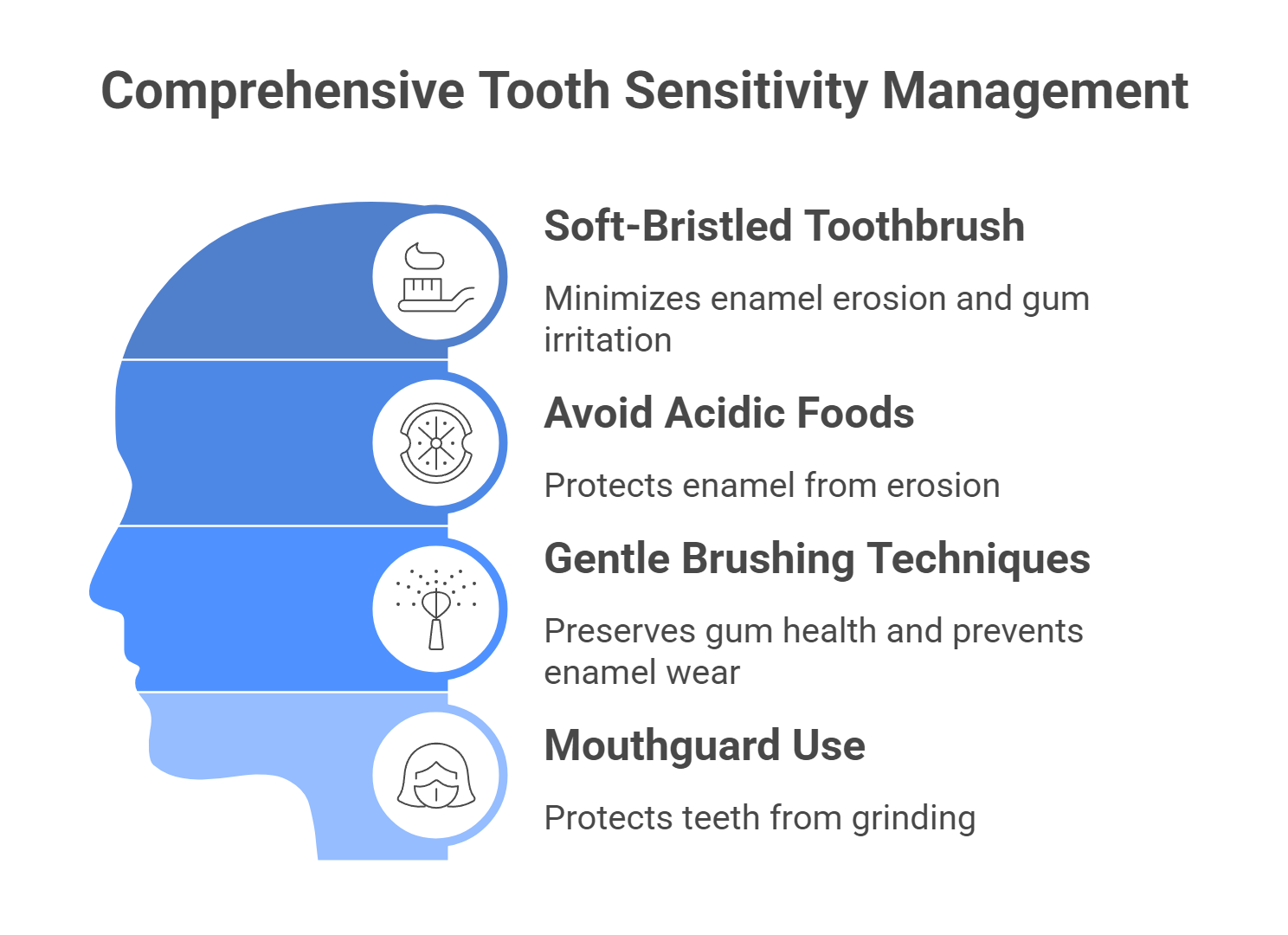
Managing tooth sensitivity goes beyond choosing the right toothpaste. Implementing specific oral care practices can further relieve discomfort and protect your teeth from future sensitivity. For instance, using a mouthguard can protect teeth from grinding and reduce sensitivity, especially for those who grind their teeth at night.
Here are some practical tips to help you manage tooth sensitivity effectively.
Use a Soft-Bristled Toothbrush
Dentists recommend using a soft-bristled toothbrush for managing tooth sensitivity. Brushing with a soft-bristled toothbrush minimizes the risk of enamel erosion and gum irritation, both of which can exacerbate sensitivity. For maximum relief, use a soft-bristled toothbrush with gentle circular strokes.
The right toothbrush is crucial for sensitive teeth. A soft-bristled one not only reduces sensitivity but also prevents damage to the tooth surface and gums.
Avoid Acidic Foods and Drinks
Acidic foods and drinks can erode enamel, leading to increased tooth sensitivity and discomfort. Limiting acidic foods and beverages is essential in protecting enamel and managing tooth sensitivity effectively. After consuming acidic foods, rinsing your mouth with water helps neutralize the acidity.
Reducing intake of acidic foods like citrus fruits, tomatoes, and soda significantly lowers sensitivity. Using a straw with acidic beverages minimizes contact with teeth, protecting enamel from erosion.
Practice Gentle Brushing Techniques
Utilizing a gentle brushing technique preserves gum health and prevents the exposure of tooth roots. Aggressive brushing can lead to enamel wear and gum recession, both of which contribute to increased tooth sensitivity. Additionally, grinding teeth can wear down enamel and exacerbate sensitivity, making it important to address this habit for better oral health.
Gently brushing with light, circular strokes helps reduce enamel damage while ensuring effective plaque removal and maintaining good oral hygiene to polish teeth.
Professional Recommendations
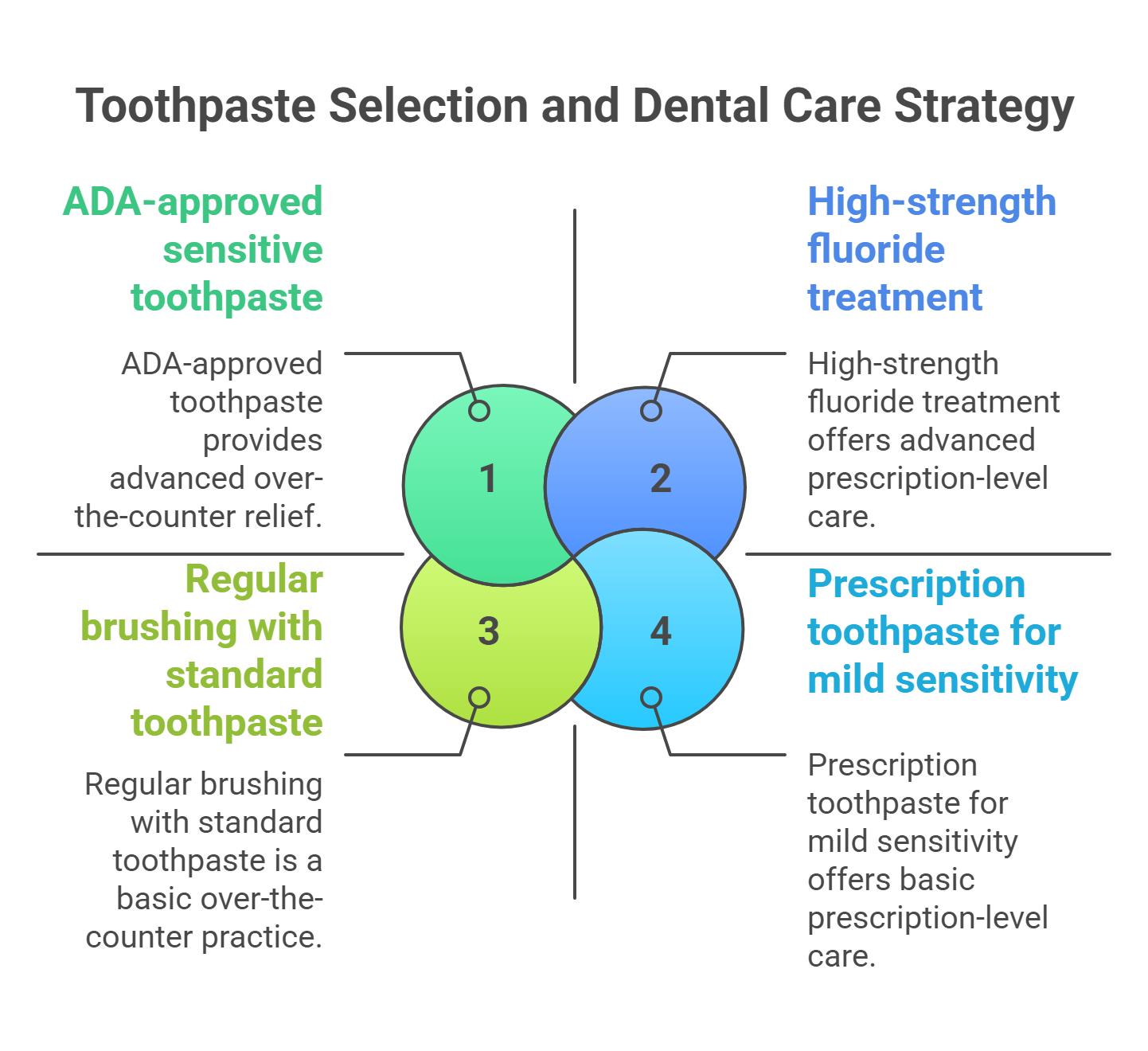
Consulting with dental professionals is one of the most effective ways to address dentin hypersensitivity and find the best toothpaste for your needs. Whether you’re dealing with tooth roots exposure, weakened enamel, or lingering pain from cold food or hot coffee, expert guidance ensures you’re choosing a product that targets the problem at its source.
Here are some expert-backed tips to help guide your selection based on personal preference and oral health history.
Look for the ADA Seal of Approval
Always look for the ADA Seal of Approval when choosing sensitive toothpastes. Products with this seal meet standards set by the American Dental Association for safety and effectiveness. This means they’ve been rigorously tested and proven to work, often containing active ingredients that both relieve discomfort and repair enamel.
Choosing ADA-approved options ensures you’re getting effective relief without ingredients that may irritate gums or erode enamel over time.
Consider Prescription Options for Severe Sensitivity
If sensitive toothpastes and regular toothpaste aren’t helping, a dentist may recommend a prescription formula. These often include high-strength fluoride and a higher concentration of active ingredients like sodium fluoride or strontium chloride to reduce pain and help remineralize enamel.
Prescription options can also be more effective at blocking access to the tooth’s nerve, especially when sensitivity is related to gum recession or exposed tooth roots. For individuals struggling with both sensitivity and enamel loss, prescription products can offer targeted support.
Schedule Regular Dental Check-Ups
Frequent dental visits are essential for identifying causes of sensitivity such as teeth grinding, cavities, or enamel erosion. Dentists can also check for conditions like gum disease, which may cause the tooth’s nerve to become more exposed.
Regular cleanings can also help remove surface stains and strengthen enamel through professional whitening treatments, when appropriate. Your dentist may also recommend gentle brushing techniques or tips to avoid acidic foods like citrus fruits that can erode enamel over time.
Staying consistent with check-ups and using the best toothpaste for your condition can help reduce sensitivity and keep your mouth feeling fresh without irritation.
Final Thoughts
Tooth sensitivity doesn’t have to control your daily life. With the right toothpaste and small changes to your routine, you can reduce pain and support stronger, healthier enamel. Ingredients like potassium nitrate, stannous fluoride, and hydroxyapatite offer powerful support in managing sensitivity and improving comfort.
Pairing a targeted toothpaste with gentle brushing, a balanced diet, and regular dental checkups can help you take control of your oral health. Making smart choices early on is the best way to prevent long-term damage and enjoy a pain-free smile.
Looking for a clean, dentist-recommended formula that supports sensitive teeth? SNOW’s fluoride-free whitening toothpaste is gentle, effective, and made to protect. It helps strengthen enamel while delivering a fresh, confident smile.
Try SNOW today and experience relief that works.
Frequently Asked Questions
What are the common causes of tooth sensitivity?
Tooth sensitivity is often caused by enamel wear, gum recession, and cracked teeth, which expose the inner layers of the teeth. Addressing these issues is essential for alleviating discomfort from hot, cold, and acidic substances.
Which ingredients should I look for in toothpaste for sensitive teeth?
Look for toothpaste containing potassium nitrate, stannous fluoride, and hydroxyapatite, as these ingredients effectively alleviate sensitivity, strengthen enamel, and aid in the remineralization of teeth.
How quickly can I expect relief from Sensodyne Rapid Relief toothpaste?
You can expect significant relief from tooth sensitivity within as little as three days of using Sensodyne Rapid Relief toothpaste. Consistent use will enhance the benefits over time.
Are there natural or fluoride-free options for sensitive teeth?
Yes, there are natural options for sensitive teeth, such as Tom's of Maine Fluoride-Free Sensitive and Twice Oral Wellness Sensitive, which utilize hydroxyapatite and anti-inflammatory vitamins to reduce sensitivity. These products can effectively cater to your dental needs without fluoride.
What professional recommendations should I follow for managing severe tooth sensitivity?
To effectively manage severe tooth sensitivity, use ADA-approved toothpaste, explore prescription fluoride options, and ensure regular dental check-ups to pinpoint and address any underlying problems.















































